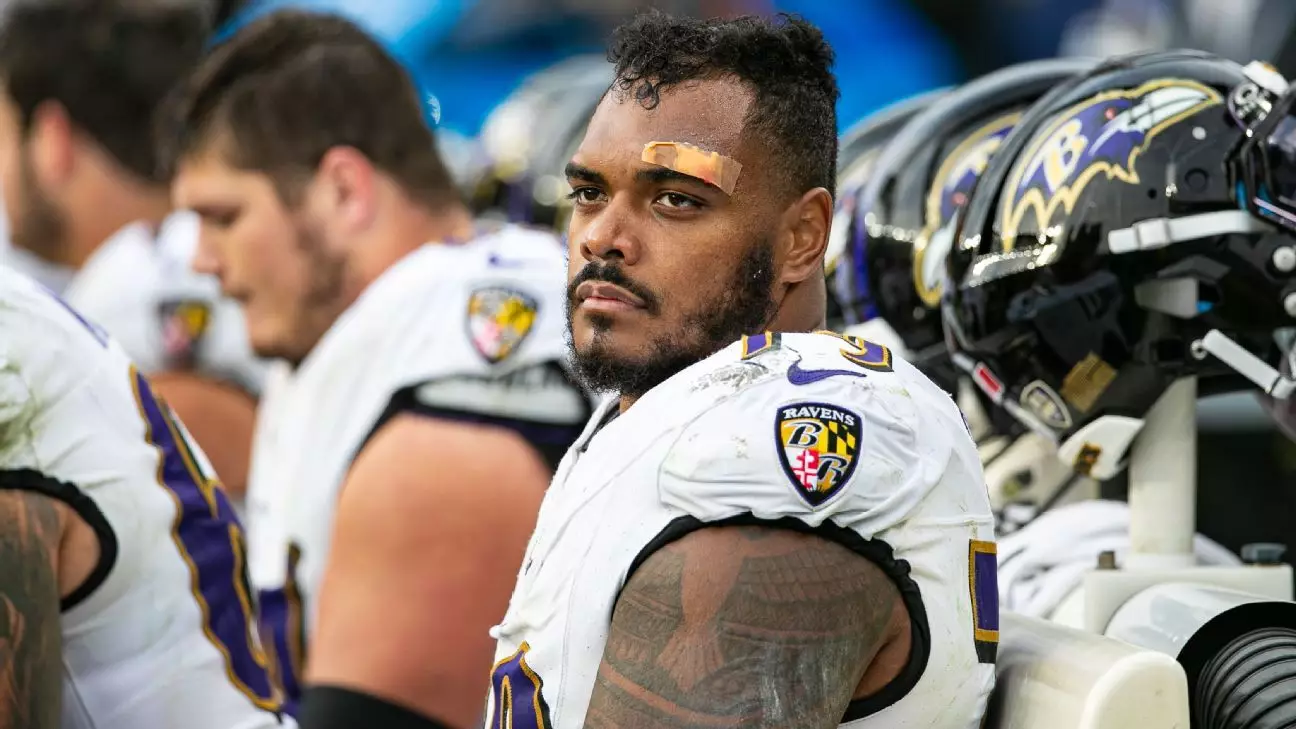In a world where professional athletes often chase the highest bidder, Ronnie Stanley’s decision to re-sign with the Baltimore Ravens for a three-year, $60 million contract stands out as a testament to loyalty and respect. Rather than testing the waters of free agency, where he could have garnered offers from teams like the New England Patriots or the Washington Commanders, Stanley chose to prioritize his relationship with the franchise that drafted him. This decision is emblematic of a growing sentiment within the league: the balance between personal ambition and team loyalty is continuously evolving.
Stanley’s remarks encapsulate the essence of his choice. He acknowledged that he was willing to provide the Ravens with a bargain compared to what he might have commanded elsewhere. In doing so, he not only assured the team of consistent performance but also managed to align his own financial aspirations with the needs of the franchise. It’s a rare act in modern sports where financial opportunities often dictate decisions more than personal attachments.
A New Perspective on Team Dynamics
Ronnie Stanley’s commitment to the Ravens sheds light on a broader issue facing professional sports: the relationship between players and organizations. Many athletes are often perceived merely as commodities, moving from team to team as contracts dictate. Yet, Stanley’s case serves as a reminder that some players do not forget the roles that teams play in their careers. Drafted sixth overall in the 2016 NFL Draft, Stanley has since become an integral piece of the Ravens’ offensive line, a fact that has likely played into his decision-making this offseason.
Moreover, this level of loyalty creates a ripple effect through locker rooms. When players like Stanley openly express their dedication to a franchise, it sets a tone for younger teammates. They see that financial gain isn’t the only yardstick for success. Stanley’s narrative encourages a culture of commitment, which could positively influence how new players perceive their careers. It illustrates how long-term investments, both financially and emotionally, can lead to a more cohesive and competitive team.
Infrastructure and Performance Benefits
From a performance standpoint, Stanley’s return is undoubtedly a boon for the Ravens. Having just come off a Pro Bowl season, he ranks among the top offensive tackles in the league. His ability to protect quarterback Lamar Jackson—an aspect crucial for the Ravens’ success—cannot be understated. Stanley’s pass block win rate was notably high, ranking him 12th among tackles. This statistical prowess highlights not just individual success but contributes significantly to the team’s overall effectiveness.
By staying with the Ravens, Stanley mitigates potential disruptions that free agency may bring with different systems, coaching styles, and teammates. His experience and leadership are valuable assets for a franchise aiming to reclaim its position as a Super Bowl contender. With the Ravens hoping to advance from last season’s heartbreaking playoff loss, Stanley’s expertise will be crucial in steering the team toward deeper playoff runs.
The Cost and Value of the NFL’s Salary Landscape
Stanley made this decision at a juncture when financial compensation in the NFL can be staggering. As franchises leverage ever-increasing revenue streams, contracts for players escalate to unprecedented levels. For instance, Dan Moore Jr. secured a four-year, $82 million deal earlier in the offseason, demonstrating the fierce competition for premier talent. In this environment, Stanley’s three-year, $60 million contract—while substantial—represents a calculated choice rather than a maximum financial decision.
Interestingly, Stanley’s willingness to take a pay cut—a move necessitated by the Ravens’ cap constraints—illustrates the complicated relationship players must navigate between personal finances and team needs. It speaks to the type of player who may prioritize a winning culture and team dynamics over mere monetary gains. Though he’s undeniably skilled enough to have negotiated a higher contract elsewhere, his deal reflects an awareness of the realities of team budgets, particularly for a franchise attempting to build a winning roster around a core group.
Ronnie Stanley’s re-signing with the Baltimore Ravens is more than just a financial transaction; it symbolizes a nuanced interplay of loyalty, leadership, and strategic decision-making that echoes throughout professional sports today.

